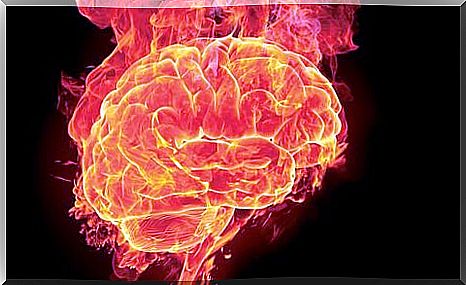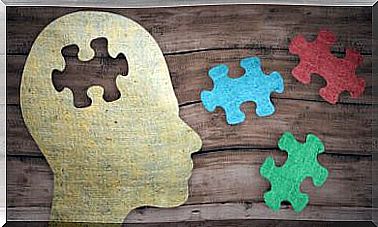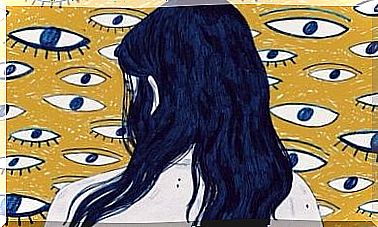The Brain Is Burning: Inflammation And Depression

“The brain is burning” is a theory that suggests that there is a relationship between inflammation and depression. Numerous studies show that many people diagnosed with depression have elevated levels of proinflammatory cytokines that affect brain function and mood.
The authors of one of these studies, Charles L. Raison, Lucile Capuron and Andrew H. Miller, published their work in the journal Cell 2006. However, it is important to note that this hypothesis has existed for several decades. In fact , it is directly related to the hypothesis which in English is called “The malaise theory of depression”.
Dr Bruce Charlton at Buckingham University has spent a significant amount of time trying to prove his theory with research and analysis. In a study he published in 2000, he tried to define the same concept.
Some people believe that depression can be linked to lifestyle, diet or even environmental degradation. Other experts believe that it is a physical response to environmental stressors or concerns.
According to the brain-burning theory, there is a physiological response to an assumed threat. This is where inflammatory or immune reactions come from. In this case, it acts as your worst enemy and weakens you instead of defending you.
According to the brain burning theory, the brain releases cortisol when it senses a stress factor. This hormone triggers the production of cytokines, vasoactive amines, nitric oxide and glucocorticoids.

There are two hypotheses that link depression to inflammation that have quite memorable names. On the one hand, you have the malaise theory; on the other hand, the brain burns theory. In addition to the different names, the two theories have a lot in common.
The reason why researchers began to believe that there was a link between the immune system and depression was the increasing number of people who did not respond to psychological treatment or medication. What could be wrong? Starting in 2000, the word inflammation gained great popularity among neurologists and psychiatrists.
Let’s take a closer look at the brain burner theory and its concept:
Mechanisms that explain the link between inflammation and depression
When your body detects a virus, it triggers an immune system with the goal of fighting the enemy. The immune system’s response is inflammation. The brain burning theory claims that our body triggers the same immune system when we experience pressure, stress, fear or anxiety.

- So when your body fights an internal pathogen, it uses white blood cells and other powerful chemicals, such as cytokines. Cytokines are a type of protein capable of coordinating the immune system.
- As we said at the beginning, researchers have noted that many people with depression have a level of proinflammatory cytokines that is higher than normal.
- A study from Janssen Research and Development analyzed 14,275 patients with depression. One of the researchers noticed that 60% of these patients had a very high level of C-reactive protein (RPC) – a hallmark of inflammatory diseases.
- Cytokines can stay in the bloodstream for several months, which can cause neuroinflammation. Over time, it can also cause physical pain and weakened immune systems.
First of all, we need to clarify something important. Not all depression is created in the same way, and not all depression is caused by inflammation. The brain burn theory plays into individuals who have tried psychological therapy and medication and have not noticed any change.
Researchers and the pharmaceutical industry face a major challenge. They have to make new medicines for these conditions. In the meantime, the following strategies have proven to be effective:
- Stress reducing exercises
- Breathing and relaxation exercises
- Physical exercises
- Anti-inflammatory diet (eat less sugar, salt, white flour, processed foods, saturated fats and avoid alcohol and tobacco).
- Omega 3 and vitamin D supplements.

In summary, many specialists believe that chronic stress triggers depression. If we were better prepared for and better equipped for these problems, we could avoid inflammation and imbalances in the immune system.
Do not think twice before seeking professional and specialized help for your problems. It is possible to get better and live an enriching and happy life.








